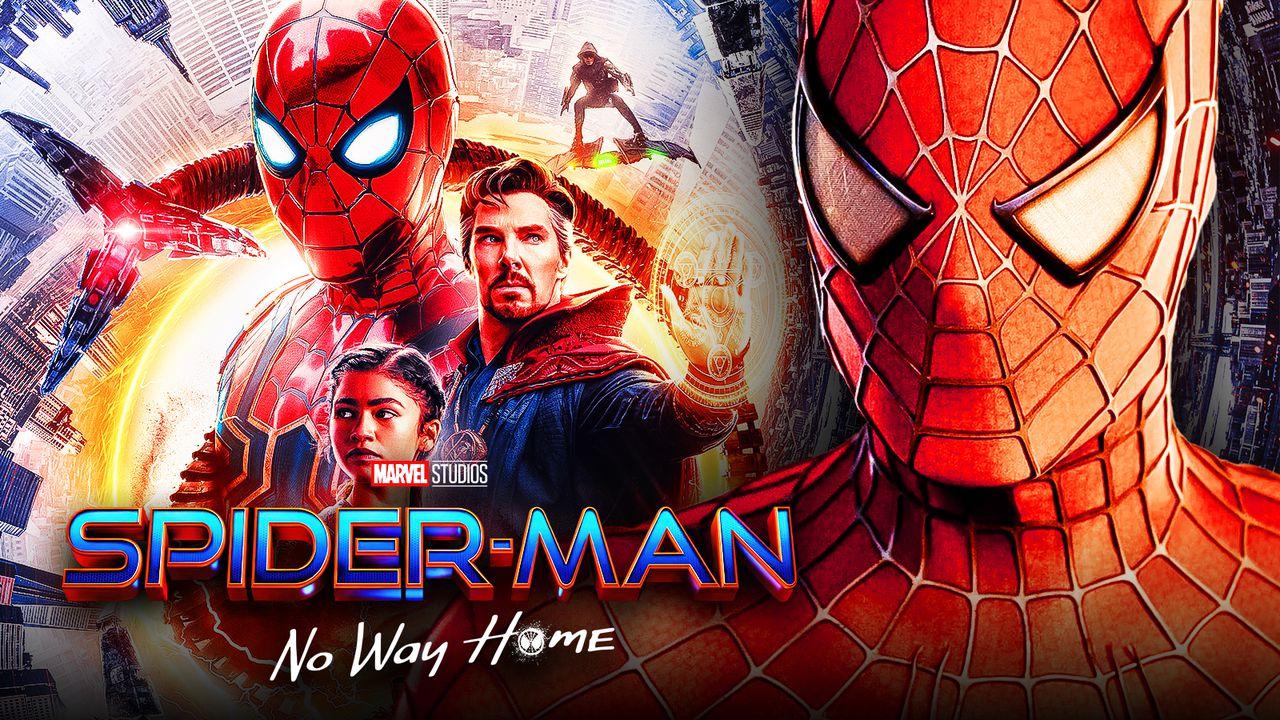
Marvel Studios is inching closer to the theatrical debut for Spider-Man: No Way Home at the end of December, which will be arguably the biggest movie release for the MCU since 2019's Avengers: Endgame. While Tom Holland's Peter Parker will find himself in the conclusion to his first MCU solo trilogy, this film will also use various techniques to pay tribute to the Spidey films starring Tobey Maguire and Andrew Garfield in the process.
This is seen most prominently with the use of five villains from those past Spider-Man movies coming into No Way Home, which includes Willem Dafoe's Green Goblin and Alfred Molina's Doc Ock. Although there is still plenty of the story that remains under wraps, Marvel and Sony have already built up enough hype to break the internet multiple times over, most recently from fans trying to get tickets to opening night.
Both Maguire and Garfield's movies will make their presence felt in various ways, as the MCU's core heroes fight to keep the Multiverse from tearing apart in a big way. Part of this even comes through some interesting camera work that Holland detailed in his most recent interview to promote the movie.
Jon Watts Uses "Raimi Cam" in MCU's Spider-Man 3
In an interview with Den of Geeks, Tom Holland spoke on some of the influence the MCU regulars and returning Spider-Man villain actors had on each other in Marvel Studios' Spider-Man: No Way Home.
Specifically, Holland looked at the way Alfred Molina had more "creative freedom" on this movie since the Doc Ock arms were completely CGI instead of mechanical, as they were in 2004's Spider-Man 2. Holland loved seeing actors like Molina being able to adjust to "the new way of filmmaking" with so many advancements and improvements over the past 20 years:
"There was quite a lot of that, actually, especially with Alfred because, I think back in the day, his arms were puppeteered, and obviously, in this film, they’re completely CG. So I think it gave him a lot more creative freedom in the way that he could just move around the set, which was really nice to see someone kind of adapt to the new way of filmmaking."
Holland revealed that director Jon Watts adopted what they called the "Raimi cam," which was used by Spider-Man director Sam Raimi throughout his Marvel trilogy.
This technique was something Raimi often used in his movies - specifically, it refers to quick zoom-in shots on various characters to help increase the intensity of any given moment:
"I think also, something that Jon Watts did really well is, he would call it the 'Raimi cam,' and he would do these really quick smash push-ins on characters, which is something Sam Raimi, I suppose, was quite famous for. So Jon definitely paid respect to the previous two movies."

Sam Raimi's Influence on No Way Home
Even for being an MCU movie, Spider-Man: No Way Home has Tobey Maguire and Andrew Garfield's Spider-Man movies' fingerprints all over it in terms of the story alone. This report confirms that Marvel Studios is paying an even bigger tribute to those movies with Jon Watts utilizing a classic Raimi shooting technique in his own MCU project.
The "Raimi Cam," as Holland described it, was something Sam Raimi used multiple times in some of the scarier moments from his three Spider-Man movies, particularly with the Green Goblin and Maguire's Spidey in his first movie from 2002. With characters like the Goblin and others coming back for more action in the MCU, fans are looking forward to seeing exactly when these shots come into play in the story.
It's also quite meaningful considering Sam Raimi is taking on his own MCU project with 2022's Doctor Strange in the Multiverse of Madness, the next theatrical release after No Way Home.
Raimi will get a chance to use his classic techniques in what should be the scariest MCU movie to date, particularly with the Multiverse being fully explored after Doctor Strange's adventures with Spider-Man. No matter what comes in that movie, the Raimi blueprint should make its impact felt on the Spidey threequel, particularly with anticipation building for Maguire's potential return to his web-slinger role.
Spider-Man: No Way Home will debut in theaters on December 17, 2021.
Richard Nebens joined The Direct in March 2020, now serving as the site's Senior Writer and also working as an assistant editor and content creator. He started his journalism career as a hobby in 2019 and is passionate about sharing news and stories from the entertainment industry, especially comic book movies, comedy, and sci-fi. Richard looks to expand his knowledge about movies and TV every day, and he is eager to stay locked into the latest releases and breaking news at every opportunity.












